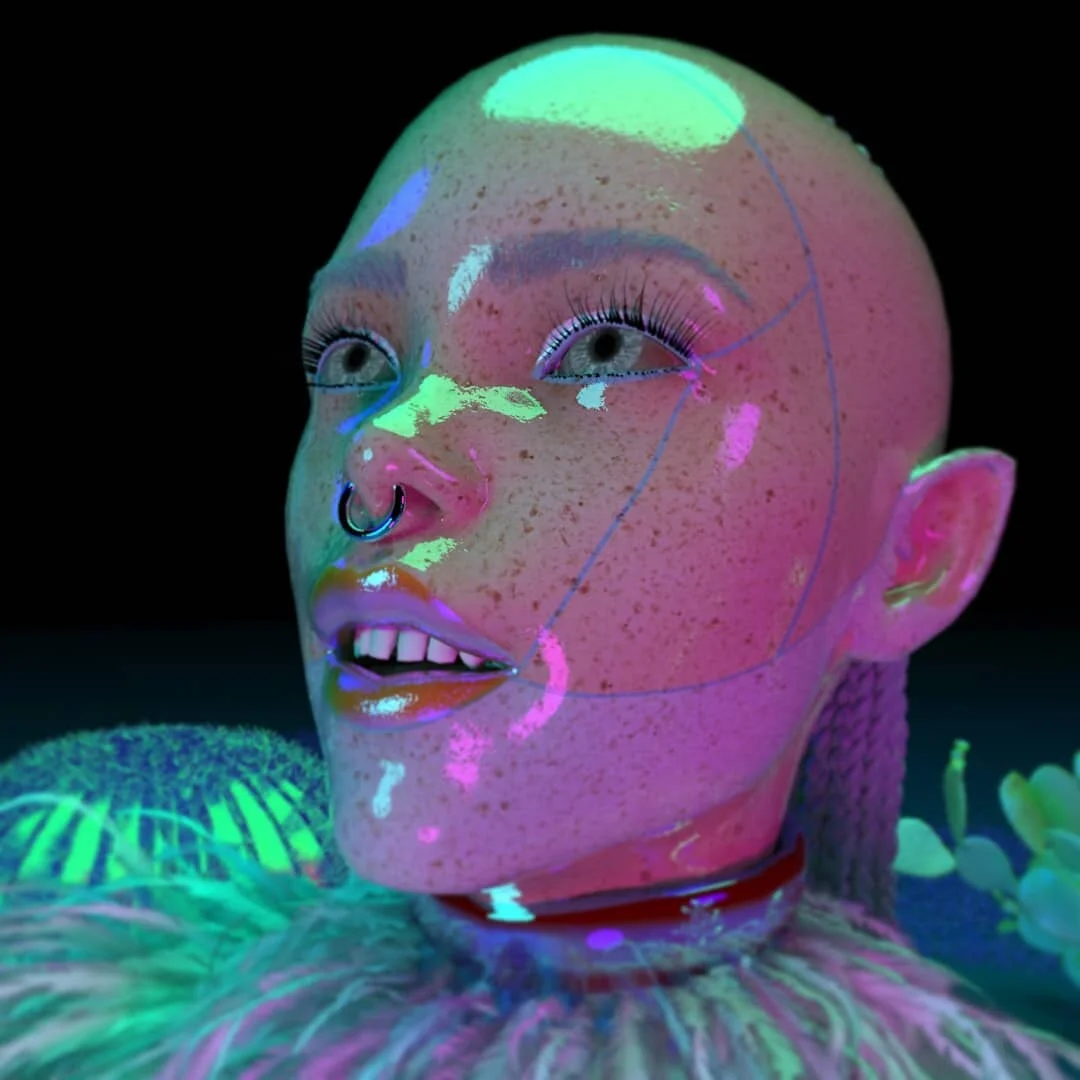Diana Ganea
Not fond of labels and putting herself in a box, Diana Ganea defines herself as a “human being interested in digital and experiential design” but it is evident that much of her works, just like LifeCredit questions the various problems and normative structures of the society we live in.
LifeCredit, created by this London-based designer, is a dystopian game loosely based on China’s social credit system that was announced in 2014. The game, which is set in 2050, allows players to take on the role of an office worker facing complications throughout. Just like the social credit system, the players are scored and ranked based on the actions taken in the game but there’s a catch; you can’t win. The way the game is set up raises concerns about the social consequences of such a system and the concept of handing off decisions of ethics to technology and computers with no emotional intelligence.
How would you describe yourself and your work to those who don’t know you?
I am not really fond of defining myself through categorical terms, as in I could cite you all the details in my passport, but I doubt that would leave you satisfied. The ways people commonly describe themselves is very disputable and constant subject to change. So as of now, I would describe myself as a human being interested in digital and experiential design.
What does your creative process look like?
It would start off with research. Within my work I find it needs to be born out of context especially since it has the tendency to take on a critical viewpoint. The next stage for me would be relentless experimentation, both contextually and visually. That way I know my ideas have been exhausted to ensure that I arrive at a different outcome and evolve my visual language.
LifeCredit is based on China’s social ranking system, were there any other inspirations when making the game?
When designing the game, I was very preoccupied with the concept of technology handling ethical situations. I believe machines increasingly will become the deciding factors and will have to be programmed to make more ethical decisions. A machine is neither evil nor good, it is sort of just a shell which we then fill with programming and it obediently executes it. Through designing this game, my surprise as to how far we as humans obediently follow instructions of faceless systems only grew. One of the dilemmas which I intended to explore within the game is the good ol’ ‘’who would a driverless car save?’’.
You’ve mentioned that your work questions reality and the unspoken rules imposed on us by society, often explored through technology; how do you feel social media has affected your real-world self and vice versa?
I think that social media is a prime example of people getting attached to a number of algorithms that aren’t tangible. The binaries of technology have never been more profound. Social media enables me to form more connections than I could ever do in the real world but, it can also create series of negative emotions such as stress and anxiety. To some degree my happiness is corelated with my social media activity, so the higher my activity the less happy I tend to be in life. Basically, I don’t want to be measured by numbers and systems. Lifecredit explores that sort of environment.
Most of your work, just like LifeCredit, follows dystopian themes but what does your utopia look like?
I don’t believe in a utopia without any dystopian elements. ‘‘It is made by the reaction of will and reason against, away from, the here-and now, and it is, as More said in naming it, nowhere. It is pure structure without content; pure model; goal. That is its virtue. Utopia is uninhabitable. As soon as we reach it, it ceases to be utopia.’’ - Le Guin
Keeping on track with the topic of dystopia and digital art, what would you like to see more of in this space in the future?
Right now, is a very interesting time. I think we are realising how dependent we are by our need for physicality. When that element is taken away from us parts of us cease to exist. It is also interesting to see how these elements are being replaced by virtual and digital versions of the original form, for example events that are now being reinterpreted into shared experiences hosted on digital platforms instead. I personally want to explore on what part of the scale we live: is it somewhere in the middle of the physical or digital realm?
This is very likely to change as the digital realm is being integrated more and more so into our daily lives.
What does the future for you and your work look like?
In the near future I am investigating the concept of sustainability, which in a sense has lost all its meaning. From brands greenwashing to the media’s excess use of the term, I doubt many of us have the same understanding of it. Solar panels are considered to be sustainable and a great source of green energy, however considering the materials it takes to build, it takes years for a solar panel to produce the energy required to actually manufacture it.
Before the virus was declared a pandemic, I was in Tokyo, researching the topic and will be using the materials I gathered there to create an installation concept that intends to explore human relationship with nature.
courtesy DIANA GANEA
interview ANISHA KHEMLANI
What to read next






